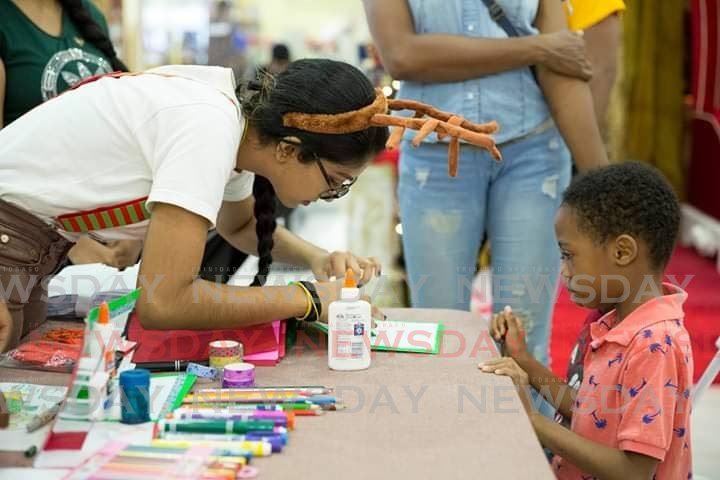I want to know if my pupils have special needs

DR RADICA MAHASE
MY name is Jennifer and I have been teaching in a government primary school for the past 25 five years. From then to now, the school environment has changed so much; the pupils have changed so much. I have been teaching first-year pupils for the past ten years. And I can tell when pupils have issues at home or difficulties with learning.
Initially, when I started teaching I used to think the pupil was just harden or "duncey-head" and I blamed it on the parents. Twenty-five years ago, if a child was disruptive we would write off that child and say we were not able to deal with that child. Sometimes we resorted to some licks to keep the pupil in line. Accessibility to information has changed all that. Now most teachers should know that when a child is acting up or has problems learning there might be deeper issues at work.
As a teacher I want to know if my pupil has any kind of special needs. I want to know, because how can I help them if I don’t know. If I know that a pupil has attention deficit hyperactivity disorder (ADHD) then I won’t think that the pupil is just being disruptive or troublesome. If I know that a pupil has autism then I will be able to understand that pupil’s behaviour and actions better. Most importantly, when I know my pupils and their specific needs I am in a better place to actually help them.
Knowing that a child has special needs makes me a better teacher. Knowledge is power and with that knowledge I am now in a position to help that child and to teach that child in a way that he or she is better able to learn.
When I know that my pupil has special needs I won’t get frustrated because the child is just "duncey-head" or disruptive; I will understand that this child is different and I need to engage with him or her in a different manner. I won’t judge that pupil and may be even condemn that pupil without making an effort to reach the pupil in different ways.

The school environment is ever-changing. As teachers it is our responsibility to move with the changes, to not become stagnant, to keep educating ourselves and to be aware of changes in society, changes in the younger generation, the ones we teach. It is our duty to educate ourselves about special needs so that we can better understand how to teach the pupil who has special needs. Information about effective teaching strategies, classroom management, interacting with those with special needs, etc are easily available and accessible today.
I don’t believe that you have to have a degree in special needs to teach a child with special needs. I am sure that having that level of qualification will certainly help but I believe that once a teacher makes it a point to find out information, to learn about the child’s unique needs then that teacher can still play a very effective teaching role in that pupil’s life. Most teachers who have been teaching for years like myself don’t have any formal qualifications in special needs but we have years of experience and we can tell if our pupil have learning disabilities, ADHD, autism, etc.
Because I teach five and six years old I pick up on the signs of autism, etc. There have been many times when my principal and I had to call in parents to tell them they need to get their children diagnosed. So many of those times parents refused to listen to us much less accept that their children might be different. But that doesn’t stop us from trying because at the end of the day we have to look out for our pupils if we want to really help them learn.
My advice to all teachers is to educate yourselves. Don’t become a dinosaur. Don’t wait for the ministry to do training sessions or workshops. There is so much information available today to help you become a better teacher. If you have pupils with special needs find out about their needs, find out how to reach them at their level, learn strategies to teach them so they can learn in their unique way – you will become a better teacher when you embrace the challenge of teaching a child with special needs.
Dr Radica Mahase is the founder/director, Support Autism T&T

Comments
"I want to know if my pupils have special needs"